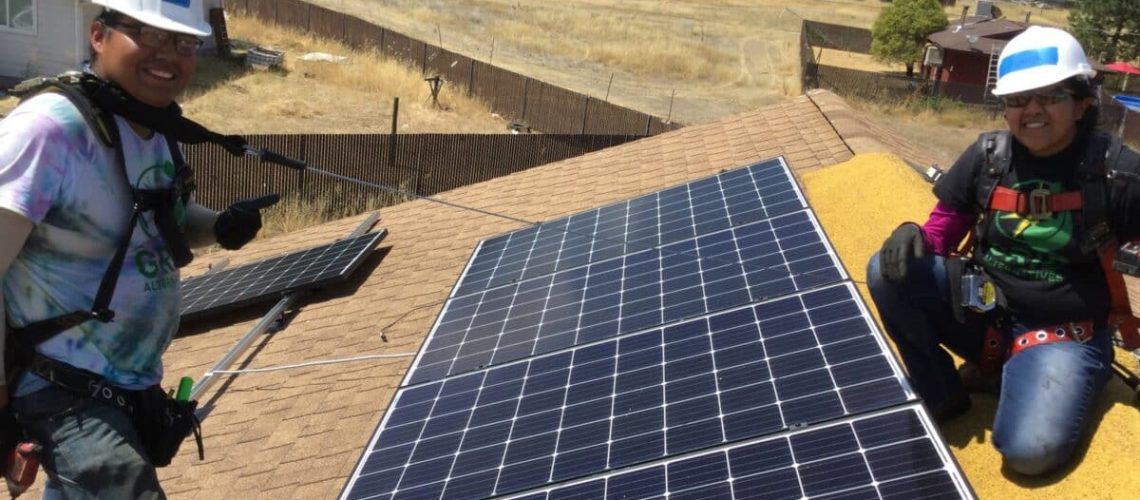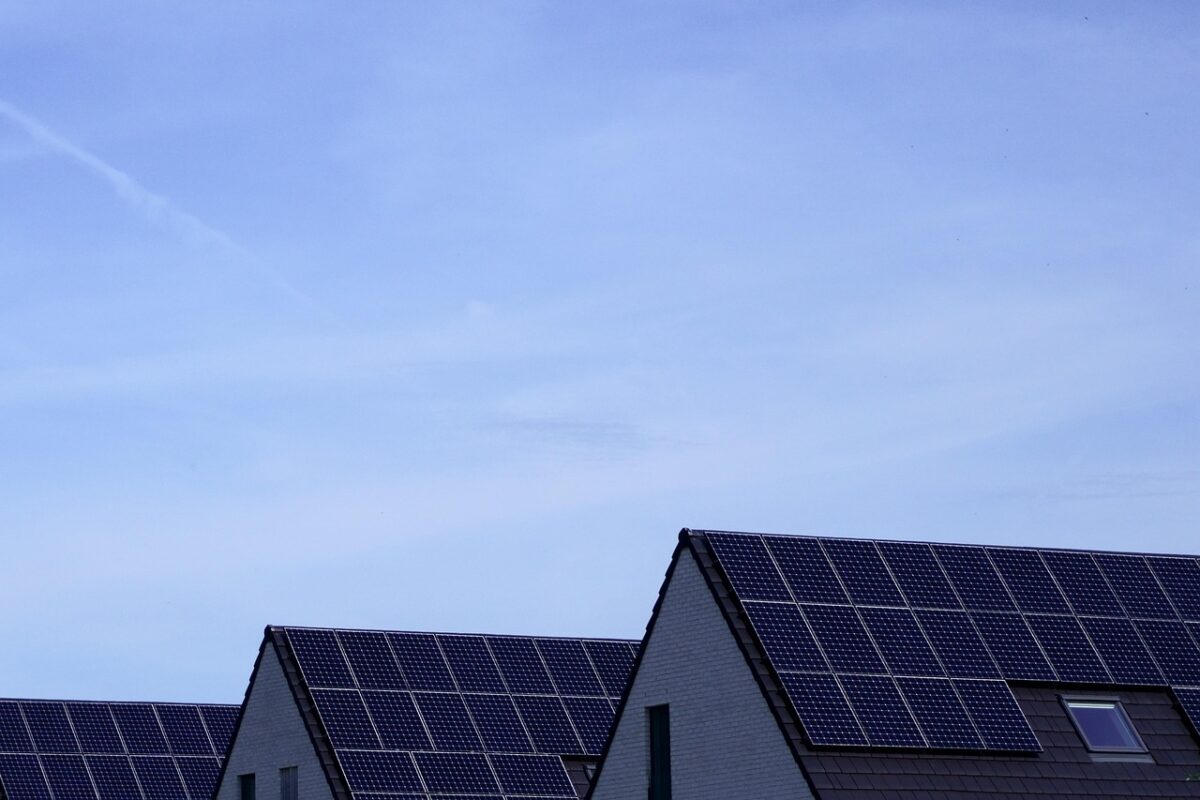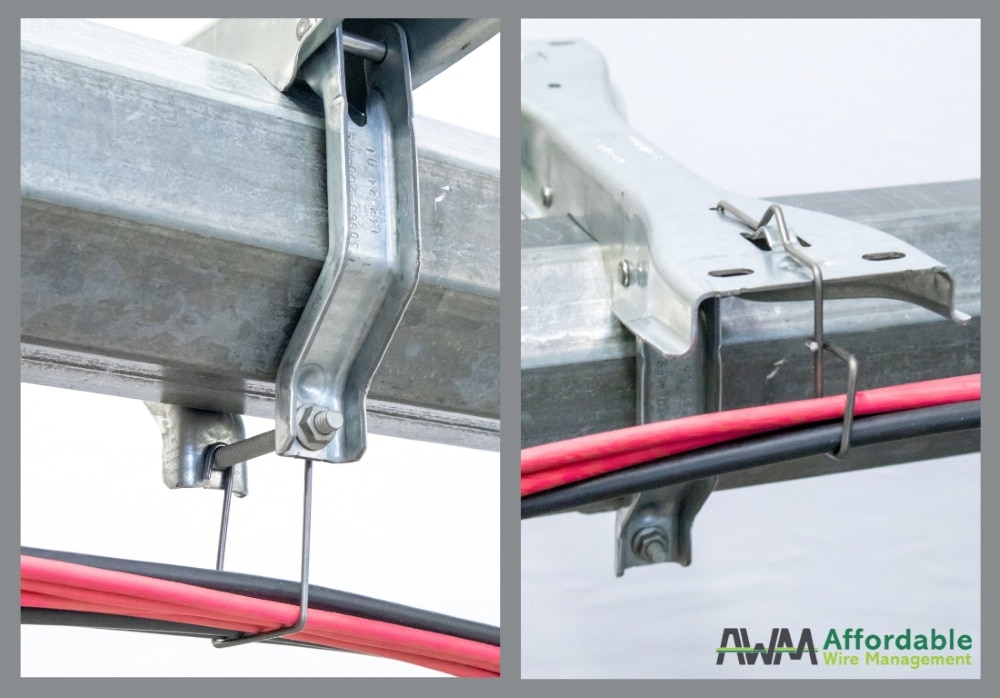An accelerator fund for tribal authorities that includes 65 tribes and over 120 tribal individuals will award grants of up to $200,000 for solar projects situated on tribal authority land, and $50,000 grants per year for tribal energy plan proposals.
Non-profit Grid Alternatives has sent out a request for proposal (RFP) via its Tribal Solar Accelerator Fund (TSAF) for a facility and residential project grant program.
TSAF, a tribal-led sustainability program that includes 65 tribes and over 120 tribal individuals, will award grants of up to $200,000 per tribe for solar projects situated on tribal authority land, and $50,000 grants per year for tribal energy plan proposals.
Types of renewable energy that can be submitted for consideration in the RFP include solar, wind, biomass, geothermal, hydroelectric, ground-source heat pumps, biofuel, RNG, nuclear, tidal energy and nuclear, according to the TSAF’s RFP. Projects can include rooftop, carport or ground-mount solar installations that meet the energy needs of the tribal community.
To apply for the tribal energy RFP or to lean more, click here.
TSAF grant timeline and reporting:
- RFP – invitation to apply notification: May 1, 2023
- Grant application due: Applications open until fully subscribed
- Grant award/denial notifications: Week of July 24, 2023
- Grant timeline (project fiscal year start/end): August 1, 2023 – July 31, 2024
- Grantee check-in’s with TSAF staff: August 2023, December 2023, March 2024 & July 2024
- Grantee final report due: August 30, 2024
Upon receipt of TSAF application, grantee applicants must meet the following funding criteria:
- Project focus on building renewable energy infrastructure in the tribal community
- Plan of action, including specific goals and measurable objective
- Feasible and cost-effective budget
- Clear outline of invested parties
The accelerator fund defines tribal authorities as federal tribal governments in the lower 48 states and Alaska, as well as tribal-led non-profit organizations with direct ties to the tribal community. TSAF is committed to serving and supporting American Indian and Alaska Native tribal communities by investing in solar energy development and sustainability programs.
As a tribal partner, TSAF will provide grantees with press release and news coverage support, host public events for project developments, create project video, list and write up the project in funder stakeholder reports and philanthropic press releases.
TSAF’s 2022 Impact Report highlights the nonprofit platform has in five years deployed 751 kW of solar systems at 87 solar installations via 27 grantees from 12 U.S. states, representing $3.2 million in grant awards to date. The nonprofit has provided workforce development training to over 120 tribal members in solar installation roles.
The government nonprofit has provided an additional $160,000 to support tribal education programs such as scholarships and $100,000 in fellowship funding to tribal members. In 2022, endowments to TSAF have come from Sempra Energy, General Motors, Wells Fargo, the Bezos Earth Fund, Intuit Foundation, Illumina and Grove Foundation.
Sempra Foundation, founded by Sempra, an investor-owned utility company, has donated more than $350,000 to TSAF to develop, finance and implement solar projects for tribal communities in California.
About 200 kW of solar capacity will be installed at single-family residences and apartment buildings at four reservations in San Diego County and Bishop, California, supporting more than 200 tribal members.
There is currently a disproportionate number of Native American households living in energy poverty, with 14.2% having no access to reliable energy, which is more than 10 times the national average.
The Inflation Reduction Act increased the total loan authority for tribal energy systems from $2 billion to $20 billion. Affairs, $150 million: This program will provide financial and technical assistance to Tribes to increase the number of Tribal homes with zero-emission electricity. On top of the 30% standalone storage ITC, the IRA offers tax credit “adders” for projects in low-to-moderate income communities, including on tribal land, for projects featuring American components and labor, and for batteries installed into repurposed fossil fuel power plants.
If a Tribal authority deploys an American-assembled storage project in a microgrid, the total cost savings can reach 60% to 70%. That incentive is shared by developer, off-take counter party, investors, and battery and parts distributors.






